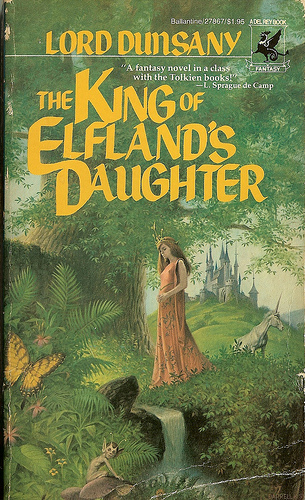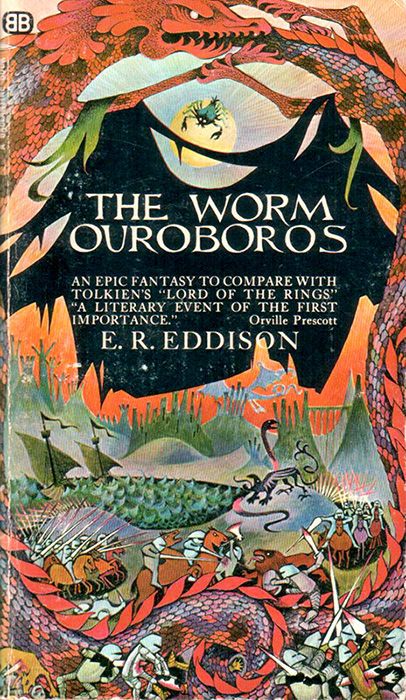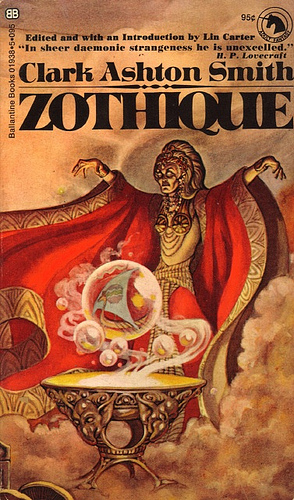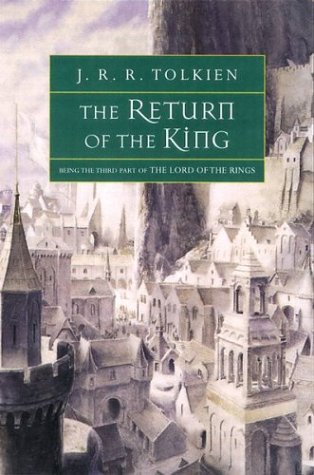ON WRITING FANTASY: A Timeless Style
 “If any man wishes to write in a clear style, let him be first clear in his thoughts…”
“If any man wishes to write in a clear style, let him be first clear in his thoughts…”
–Goethe
“Don’t tell me the moon is shining; show me the glint of light on broken glass.”
–Anton Chekhov
“A good style should show no signs of effort. What is written should seem a happy accident.”
–W. Somerset Maugham
The five basic Elements of Fiction are character, plot, setting, theme, and style. In a previous post I added Originality to this list, especially when it comes to Fantasy Fiction. This time around I’d like to talk about Style…what it is, why it’s important, and most importantly how to get one.
Style is important in all kinds of writing, but Fantasy has its own stylistic demands. Very few people alive today are experts at writing in Old English, Middle English, or other antique forms of language. And what’s more, very few readers want to read stories/book written in such a style.
Consider this passage from E. R. Eddison’s fantasy masterpiece, THE WORM OUROBOROS:
“Then befell great manslaying between the sea-cliffs and the sea. The Demons, taken at that advantage, were like a man tripped in mid-stride by a rope across the way. By the sore onset of the Witches they were driven down into the shallows of the sea, and the spume of the sea was red with blood. And the Lord Corinius, now that he had done with feigned retreat, fared through the battle like a stream of unquenchable wildfire, that none might sustain his strokes that were about him.”
 For those of us who relish Shakespeare and thrill to antique forms of language, this brilliant passage is highly enjoyable. Yet there is no doubt that its style is vastly outdated and many modern readers would shy away from this fantastic novel simply because of its weight of style and ponderous language. Beauty is in the eye of the beholder, but keep in mind that Eddison published his masterwork way back in 1922. Although beautiful and perfect for the feel of high fantasy, that language just doesn’t fly today…unless you’re staging a production of HAMLET.
For those of us who relish Shakespeare and thrill to antique forms of language, this brilliant passage is highly enjoyable. Yet there is no doubt that its style is vastly outdated and many modern readers would shy away from this fantastic novel simply because of its weight of style and ponderous language. Beauty is in the eye of the beholder, but keep in mind that Eddison published his masterwork way back in 1922. Although beautiful and perfect for the feel of high fantasy, that language just doesn’t fly today…unless you’re staging a production of HAMLET.
Instead of antique language, today’s fantasy demands a certain timelessness of language. That’s where the writer’s Style means everything.
There’s on old show-biz joke that goes: “How do you get to Carnegie Hall?” The punch line: “Practice.” It’s much the same with Style. The absolute WORST thing you can do as a young/beginning writer is consciously emulate someone’s style. Imitation may be the sincerest form of flattery, but it is NOT the best route to great writing. Style comes mainly from a writer’s subconscious and natural tendencies…it is as distinctive as a thumbprint and it can change over time. We all change as we grow, learn, and develop in life, and so it’s only perfectly natural for our writing style to change.
In fact, I’d go so far as to say that a writer’s style is CONSTANTLY in a state of flux. Personally, I feel that every piece of writing takes a writer to the next level of skill…i.e. your style is refined the more you write. Hence the Carnegie Hall principle. How do you become a better writer with a compelling and evocative style? Practice. There is no substitute for actual writing done consistently and frequently.
Dictionary.com defines literary “style” as “those components or features of a literary composition that have to do with the form of expression rather than the content of the thought expressed.” What the heck does that mean?
Style is the words you choose; the sentence structures that dominate your thoughts on the page; the figurative language you use (metaphors and similes); it is the base core of language and how you use it in your writing. Some writers have dense, intricate styles…others pare down their writing to the bare basics of subject/verb/object. This latter technique was certainly the goal of Ernest Hemingway. What does Hemingway have to do with fantasy fiction? More than you might think.
 When I first started writing fiction I tended to unconsciously (and consciously) imitate my favorite writers. The problem with this is that most of my favorite writers at that time were the pulp authors of the early 20th Century: Robert E. Howard, Clark Ashton Smith, H.P. Lovecraft, Edgar Rice Burroughs. So I was a young man attempting to write modern fiction in a voice that was not only several decades out-of-date, but also a voice that was not my own genuine expression. As hard as I tried, I would not be the genius of baroque prose that Smith was, and even if I were able to master his style completely, it wouldn’t have been MY style. It would have been merely an imitation.
When I first started writing fiction I tended to unconsciously (and consciously) imitate my favorite writers. The problem with this is that most of my favorite writers at that time were the pulp authors of the early 20th Century: Robert E. Howard, Clark Ashton Smith, H.P. Lovecraft, Edgar Rice Burroughs. So I was a young man attempting to write modern fiction in a voice that was not only several decades out-of-date, but also a voice that was not my own genuine expression. As hard as I tried, I would not be the genius of baroque prose that Smith was, and even if I were able to master his style completely, it wouldn’t have been MY style. It would have been merely an imitation.
Many years later, and after much guidance from a more accomplished writer, I learned to pare down my language. I didn’t need so many adjectives and adverbs cluttering up my language. A well-turned phrase is best when its simple and clear. It was World Fantasy Award-winning Editor Darrell Schweitzer who pointed out to me how the great Lord Dunsany painted lush images in a reader’s mind with clever simile and metaphor instead of a dozen adjectives. Consider this passage from Dunsany’s story “Carcassonne”:
“And night came down with its mystery on the forest, and gave their demoniac look again to the trees, and rolled up out of misty hollows a huge and yellow moon.”
Figurative language at its best,and only four of these 31 words are adjectives. Similes and metaphors are the stuff of great imagery, and great imagery is the lifeblood of fantasy fiction. Here’s another great Dunsany passage from “The Fall of Babbulkund”:
“And all that night the desert said many things, softly and in a whisper, but I knew not what he said. Only the sand knew and arose and was troubled and lay down again, and the wind knew.”
Exquisite. Dunsany is the grandfather of modern fantasy, predating Tolkien, and his langage has that timeless quality of dream, myth, and legend. These stories were written years before Clark Ashton Smith’s lushly styled stories such as “The Death of Ilalotha”:
“Unchilled and undismayed, he entered those always-open portals of death, where ghoul-headed monsters of black marble, glaring with hideously pitted eyes, maintained their charnel postures before the crumbling pylons.”
In the hands of a lesser writer, this passage would not work at all. Yet Smith’s mastery of poetic verse informs his style to an extreme degree. His is one of the most verbose and intricate prose styles in the history of fiction. Despite Smith’s skill and genius, many modern readers would shy away from such prose…and most modern editors do as well. And keep in mind that editors are the ones who BUY the stories.
It took me years to master the writing of tales set in antique lands and ancient kingdoms without trying to use the language of those ancient times. Whenever I attempted it, I failed. It is incredibly difficult to write in a style that does not come natural to you. Yet I expect a certain amount of “timeless quality” to the language when I read a fantasy story.
 Unlike a sci-fi, horror, or other kind of tale, the Fantasy Tale requires that timelessness of style. Consider the HBO series ROME…a pitch-perfect example of using timeless language to evoke an ancient world. The writers carefully avoided expressions or word choices that would be anachronistic, yet they also kept the dialogue as relevant and snappy as possible. You don’t need flowery, antique language to create believable, colorful fantasy worlds! All you need is simple language that works on the strength of subject/verb/object and a mastery of figurative language (simile and metaphor). That mastery also includes knowing instinctively WHEN to be figurative. Don’t over-do it.
Unlike a sci-fi, horror, or other kind of tale, the Fantasy Tale requires that timelessness of style. Consider the HBO series ROME…a pitch-perfect example of using timeless language to evoke an ancient world. The writers carefully avoided expressions or word choices that would be anachronistic, yet they also kept the dialogue as relevant and snappy as possible. You don’t need flowery, antique language to create believable, colorful fantasy worlds! All you need is simple language that works on the strength of subject/verb/object and a mastery of figurative language (simile and metaphor). That mastery also includes knowing instinctively WHEN to be figurative. Don’t over-do it.
There are those who don’t mind fantasy tales that use anachronistic language. Personally I can’t stand it when a charging knight yells “Screw you!” or a scheming wizard vows to “kick ass” in the coming battle. I want the fantasy that I read…and write…to feel authentic. To wrap the reader in a spell of timelessness just enough to transport him/her into a world beyond our own.
Start with simplicity of language, and stick to it. When you “try to be fancy,” you’re headed in the wrong direction. Eventually, after you’ve written and written and written, someone will tell you how beautiful your choice of language was and you’ll think “Really? I didn’t plan it that way…it just came to me.” That’s where the best Style comes from…the writer’s Self. Be true to yourself, and you will find your Style.
The other thing you can do as you hone your Style (and your Voice) is read the works of the writers whose language thrills you. Then go back and read it AGAIN. Take passages you especially love and dissect them. Tear them apart…see what makes them work…find the subjects, the verbs, the objects, the modifiers and watch how they’re put together. Look at the word choice, the sentence patterns, and most of all pay attention to the similes and metaphors. Rewrite your favorite passages of your favorite stories and see how you would express them in your own words.
It also helps if you practice writing poetry…poetry is the most “lean and mean” style of all writing. Every word means more because there are less of them. Figurative language does most of the heavy lifting in poetry.
 And read, read, read. Don’t read writers whose style annoys you. Read the ones that thrill and amaze you. Don’t settle for clumsy, blundering language because you may absorb a writer’s flaws into your own style. The flip side of this is that you will also absorb the GOOD stuff into your own style.
And read, read, read. Don’t read writers whose style annoys you. Read the ones that thrill and amaze you. Don’t settle for clumsy, blundering language because you may absorb a writer’s flaws into your own style. The flip side of this is that you will also absorb the GOOD stuff into your own style.
Start thinking in terms of simile and metaphor. When you spot one you enjoy, highlight it for later analysis. Figurative language is your friend…especially when you write Fantasy Fiction. But simple language is also your friend. Never forget that.
Do your homework. Then…forget all about these things when you sit down to write. As samurais have been known to say about the art of sword-fighting, the invisible technique is the winning technique. The sames goes for musicians, athletes, and other arts: You perform best when you are not thinking of your technique. Instead, it must flow through you.
If you think too much about the notes on your fretboard (or keyboard), you will mess up. Here’s where the practice comes in. Absorb the works and language of the writers you adore, and study their techniques. Then forget it all…let it sink into your subconscious. When you write, it will bubble forth and the result will be YOUR style. Your voice.
You may have gathered by now that there is no short-cut to Style. That’s true. Just as there is no short-cut to being a great basketball player, a great swordsman, or a great guitar player. You must read and write…and read and write. If it’s in your heart, it will come out. Don’t write for anyone else…write for yourself first and foremost. Style will follow.
All that said, there are writers who work in certain styles for different types of fiction. I’ve done this myself. But the secret is that this, too, comes naturally. And you will find “common denominators” in anything a writer does, despite variations in surface style.
Style is ultimately a product of a writer’s skill. That skill, like any other, will grow with time, practice, and dedication.
Finally, keep in mind that when Style works best, the average reader doesn’t notice it at all. Willa Cather put it this way: “I don’t want anyone reading my writing to think about style. I just want them to be in the story.” A good Style draws in the reader and puts him in the trance of the narrative. When you listen to a beautiful or moving song, you don’t hear the NOTES…you hear the MUSIC.
Style is the music of prose.
One of my favorite books is The Merry Adventures of Robin Hood by Howard Pyle. That was hard for me to get into at first when i started reading it because of the older english language used. but after a chapter or two i didn’t even realize i was reading that language.
Style is something i think about after i’ve finished the book of an author. I enjoy thinking about the author style in depth and why i like or don’t like it.
Well done, really enjoyed that.
As far as metaphor goes, I’ve noticed one tricky element to it that only fantasy/science fiction writers really have to worry about. Sometimes, as a reader, I become confused whether a fantasy writer is being literal or metaphorical. When a writer says a wizard’s eyes glow, for instance, do they literally create light, or merely appear to glow with emotion/intensity? I remember reading one fantasy story in which a character was described as a gargoyle, and I only realized several pages later that the writer meant the character was an actual stone gargoyle come to life. I had just thought the character was grotesque.
Much of the time, this is only confusing to me, but sometimes it can help heighten the mood and draw me into that world: is this a world in which statues literally move, or is it always just a trick of the light? If the superstitious characters don’t know, and I don’t either, then it opens up new and uncanny possibilities! Even in our own world, the line between reality and magic was often blurred for common people, and the not knowing draws me back into that more simple, and more magical, mindset.
[…] Tessa on Maturity and the Artist.Rochita Loenen-Ruiz on Finding Our Stories.John R. Fultz On Writing Fantasy: A Timeless Style.Shawn Speakman on The Creation of a Cover.Mike Brotherton on More Online Astronomy Resources for […]
[…] “Chasing the Dragon” series of blog entries on, well, writing. This entry on “A Timeless Style” by John R. Fultz is excellent, with loads of examples and suggestions on creating your own […]
[…] In this third installment of an ongoing series I’d like to talk about the role of “Plot” in Fantasy Fiction. (Previous installments covered Originality and Style.) […]